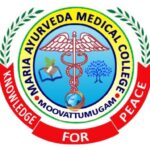Ayurveda is considered as the ancient system of healthcare in India. More than a medical system Ayurveda is a way of life cooperating with nature.
It provides integrated approach to prevent and treat illness through lifestyle interventions and natural therapies. Agadatantra is one among the Ashtangaas (eight branches)of Ayurveda.
Agadatantra is a specialized branch of Ayurveda that provides detailed description about animate and inanimate poisons and methods of eliminating them from the body. It deals with various natural and artificial poisons in detail along with their treatment procedures.
It deals with a wide range of natural toxins originating from animals, plants, minerals and artificial poisons. This branch also deals with environmental toxicology. Apart from these it handles subjects such as forensic medicine, identification, medical laws and ethics, legal
procedures, autopsy findings etc.
At present the Department handles subjects such as – Vishavijnana( Ayurveda Toxicology), Forensic Science, Medical law and ethics, Jurisprudence, Acts & rules related to medical field, Impacts of air-water-land pollutions, for BAMS students. Museum of Department of Agadatantra at present lodges specimens related to the topics of Agadatantra, Forensic science and Jurisprudence for effective teaching at UG level. The Museum at present holds 42 charts, 20 models 73 specimens and 60 department library books.
The Department imparts training to under graduate students in Ayurvedic classical references of Visa (poison), its detailed description, its classifications and examinations, principles of managements and preventive measures, along with management of dooshi visha (latent poisons). This department also deals with toxicology, forensic medicine and medical jurisprudence.
Vision
Our vision is to provide the students an excellency in Academics,
Research and Clinical Services in the field of toxicology and
understanding the aspect of Visha for valuable applicability in higher
education.
Mission
1. To impart awareness among the general public on –
Environmental pollution, use of harmful pesticides that
contaminate natural sources of human food and the use of
chemical cosmetics, substance abuse etc.
2. To educate and inspire students to follow medical ethics and to
give confidence to face the medicolegal challenges successfully
